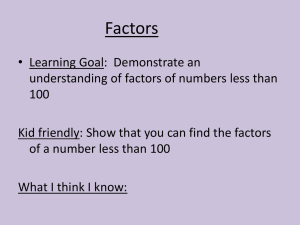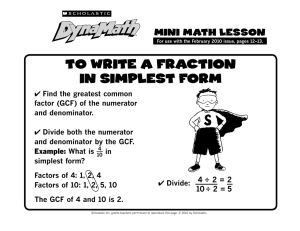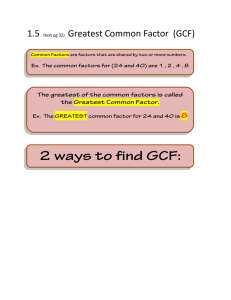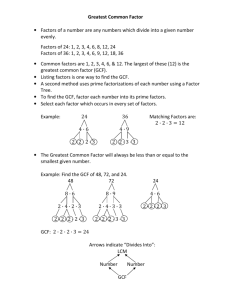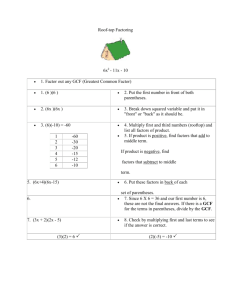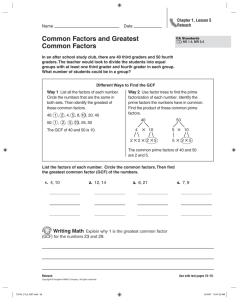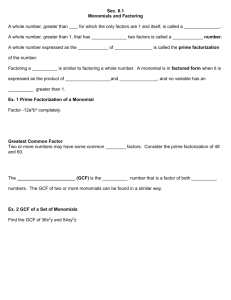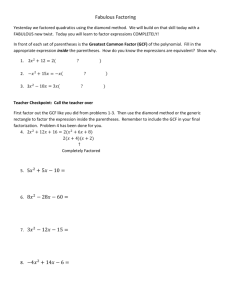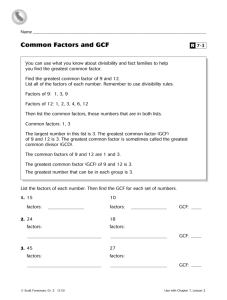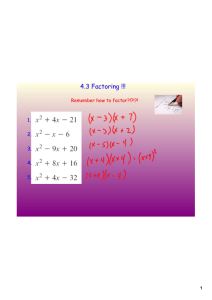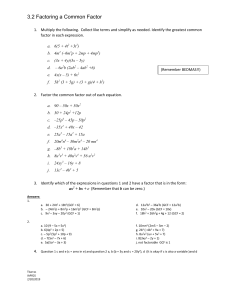Set Intersection Method Example. Find GCF(36,48).
advertisement
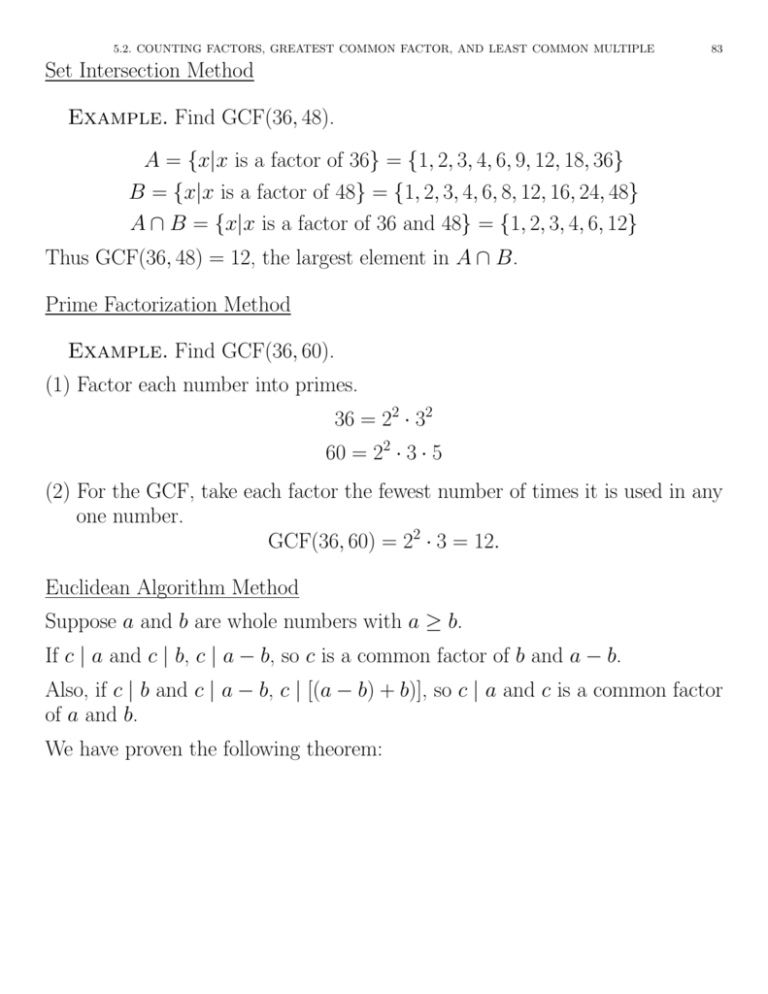
5.2. COUNTING FACTORS, GREATEST COMMON FACTOR, AND LEAST COMMON MULTIPLE
83
Set Intersection Method
Example. Find GCF(36, 48).
A = {x|x is a factor of 36} = {1, 2, 3, 4, 6, 9, 12, 18, 36}
B = {x|x is a factor of 48} = {1, 2, 3, 4, 6, 8, 12, 16, 24, 48}
A \ B = {x|x is a factor of 36 and 48} = {1, 2, 3, 4, 6, 12}
Thus GCF(36, 48) = 12, the largest element in A \ B.
Prime Factorization Method
Example. Find GCF(36, 60).
(1) Factor each number into primes.
36 = 22 · 32
60 = 22 · 3 · 5
(2) For the GCF, take each factor the fewest number of times it is used in any
one number.
GCF(36, 60) = 22 · 3 = 12.
Euclidean Algorithm Method
Suppose a and b are whole numbers with a
If c | a and c | b, c | a
Also, if c | b and c | a
of a and b.
b.
b, so c is a common factor of b and a
b, c | [(a
b.
b) + b)], so c | a and c is a common factor
We have proven the following theorem:

